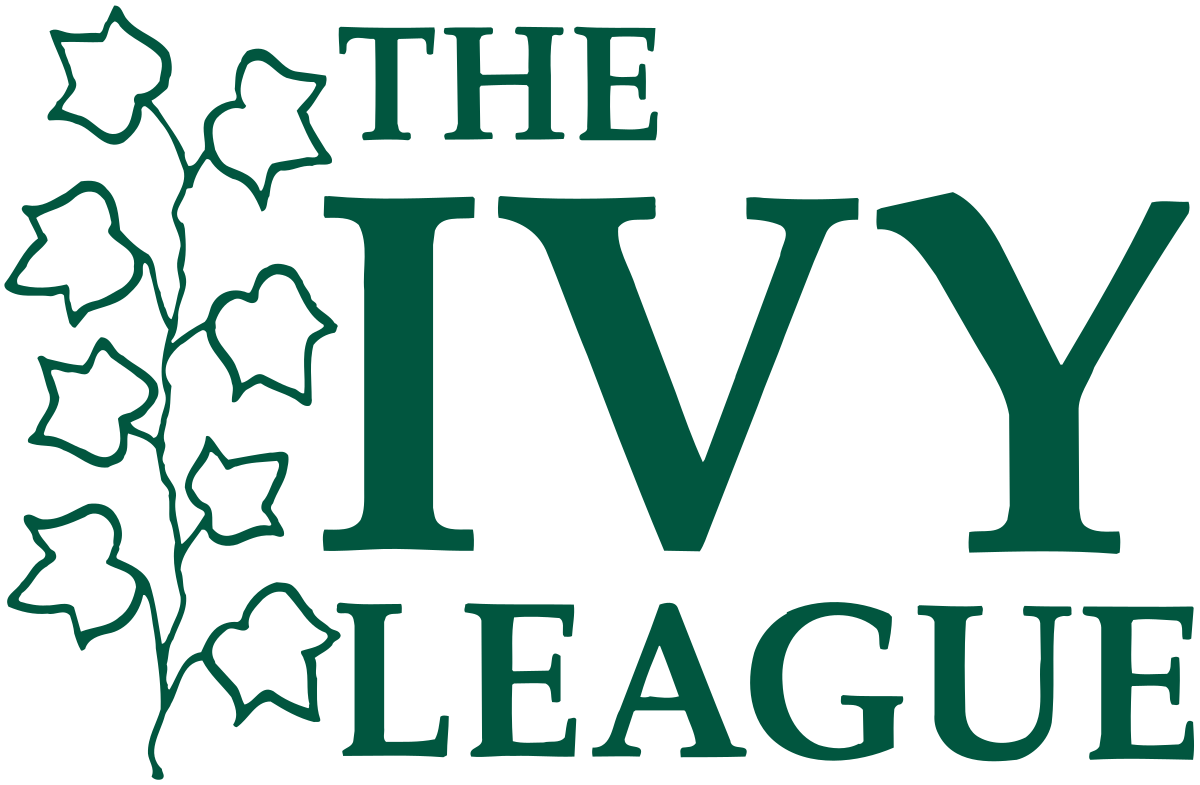Basketball Recruitment in the Ivy League and how you can find success
Even among the Division I Basketball teams, there are no basketball recruitment calendars more competitively intense than those of The Ivy League. Parents, guardians, and student-athletes alike spend years planning ahead and researching how to find success in landing recruitments on these teams. Since these schools are always scouting for new talent, it’s never a bad time to get started.
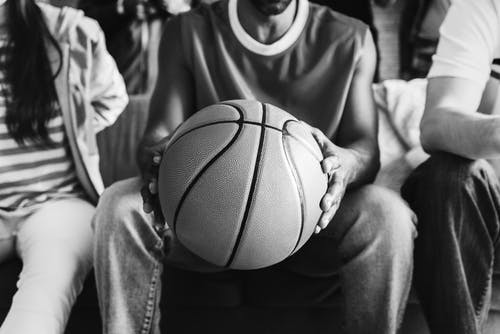
But if you need the hot tips that will get you started right, then read on ahead. You’ll learn that Basketball recruitment success in the Ivy League is within your grasp.
This article will tell you why the Ivy League Basketball Recruitment programs are so desired, tell you about training programs and recruitment exposure opportunities, as well as other details that will make sure that you don’t waste your time this academic year.
But let’s get started by looking at why you want to choose The Ivy League as your target for basketball recruitment.
Why is Ivy League Basketball so important?
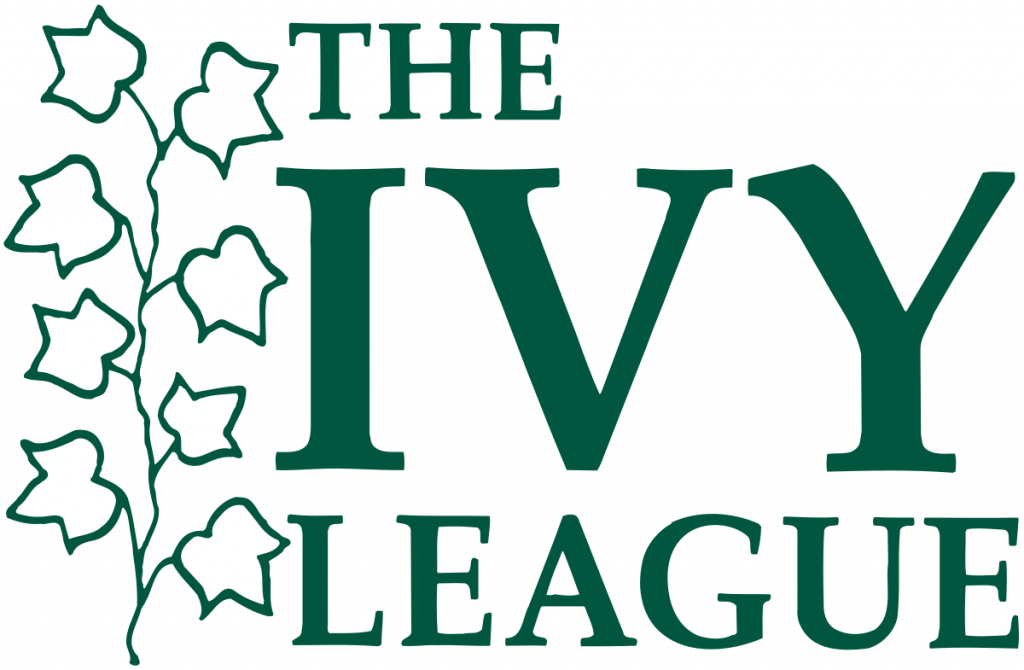
The eight private universities that make up the Ivy League rank highly as the most prestigious universities in the world. These schools feature low enrollment counts with a student body size that is normally between 4,000 to 14,000 students. These schools have large financial endowments that range from Brown’s nearly $4 billion to Harvard’s $34.5 billion.
It’s easy to guess that The Ivy League has strict requirements for any student who wants to join, whether for their basketball recruitment calendar or not.
You might be wondering why?
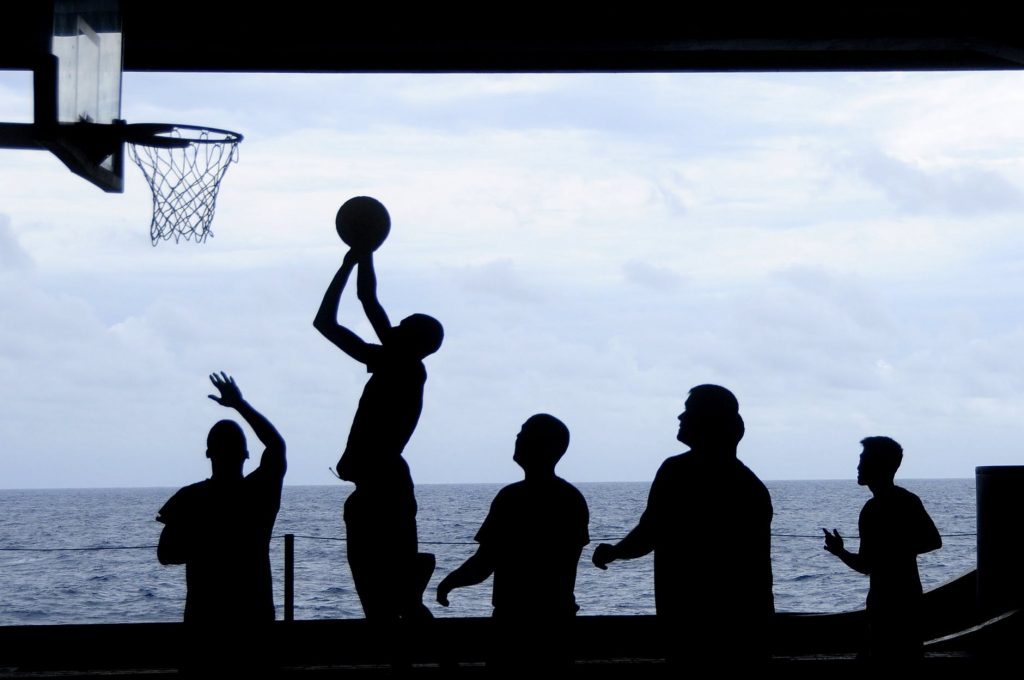
You can look at the Ivy League’s history to see why they are such prestigious universities. You have to look at The Ivy League as at the university level and at the athletics level to understand the competition. To understand The Ivy League Universities and their athletics programs, you have to start at the history of The Ivy League.
History of the Universities
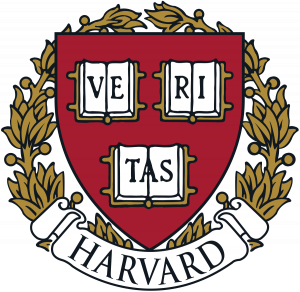
Harvard was the first of the Ivy League schools, which was founded in 1636. The university is noted for several achievements to include being home to one of the first North American printing presses.
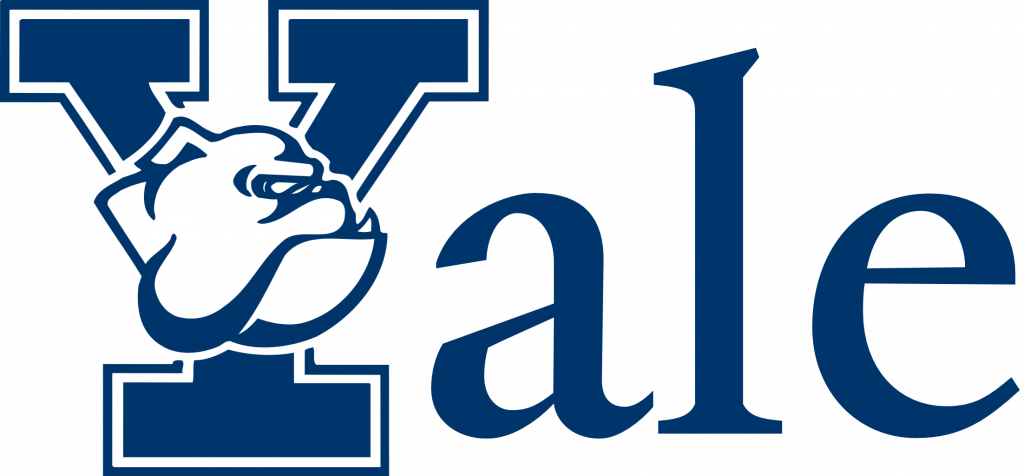
Yale opened it’s doors almost 70 years later in 1701, as a university exclusive to white Protestant males. The university would later open to more diverse students in the mid 1800s.
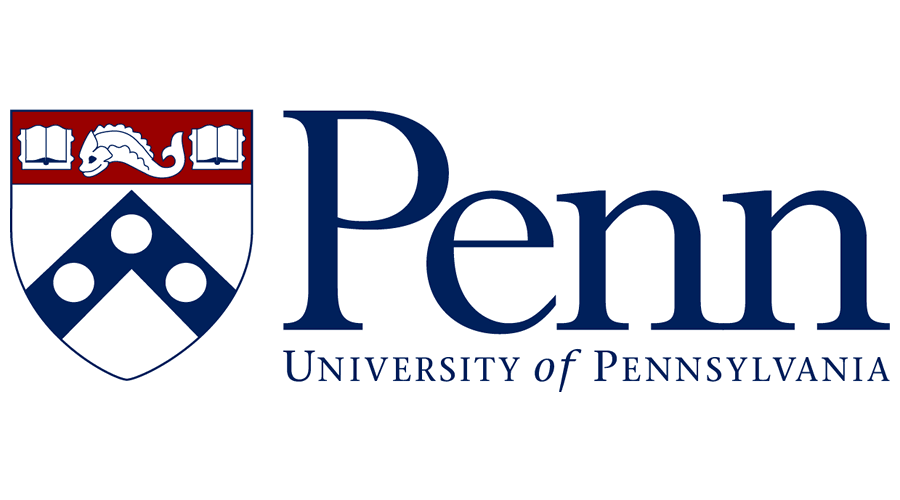
The next two Ivy League universities were The University of Pennsylvania, founded in 1746 by Benjamin Franklin as well as Princeton that same year.
Pennsylvania was intended to be a university to be a preaching hall and charity school. Benjamin Franklin confirmed his goal of establishing Pennsylvania as an academy in his autobiography.

Princeton was intended to be an academy to train ministers and was originally named The College of New Jersey, only changing it’s name to Princeton when it moved to Princeton, New Jersey.

King’s College Church of England was founded in 1754 by the royal charter of King George II. After the American Revolution, it was renamed to Columbia.
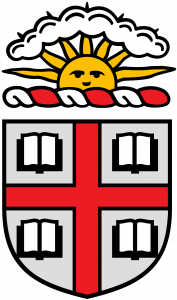
Brown was later founded in 1764 and was noted as being the first university to accept students regardless of religious affiliation. It was also the first Ivy League school to introduce an Engineering program.
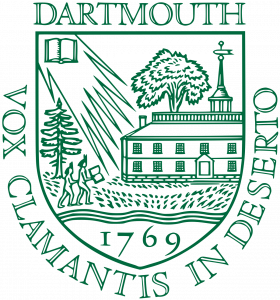
Dartmouth was founded five years later in 1769 with the intent to train Christian missionaries from the Native American population. It fell into obscurity due to poor funding until William Jewett Tucker renovated and expanded the university during his time as University president between 1893 to 1909.

The last Ivy League university, Cornell, was founded with the intent of teacing all fields of knowledge. A famous quote by Ezra Cornell summarized this goal by saying, “I would found an institution where any person can find instruction in any study.”
You might be wondering about the basketball programs for these universities. So let’s look at those next.
History of the Ivy League Basketball programs
The first Ivy League basketball league, then known as the Eastern Intercollegiate Basketball League was formed in 1902 by Columbia, Cornell, Yale, Harvard, and Princeton. Penn and Dartmouth joined them at a later date.
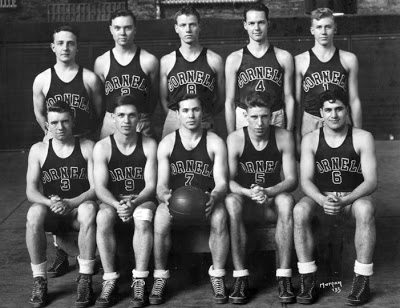
What makes this interesting and significant is the fact that, at this time, The Ivy League was not even formally established. In fact, The Ivy League, was a term coined by Stanley Woodward of the New York Herald Tribune, when he wrote the following in 1935:
The athletic authorities of the so-called “Ivy League” are considering drastic measures to curb the increasing tendency toward riotous attacks on goal posts and other encroachments by spectators on playing fields.
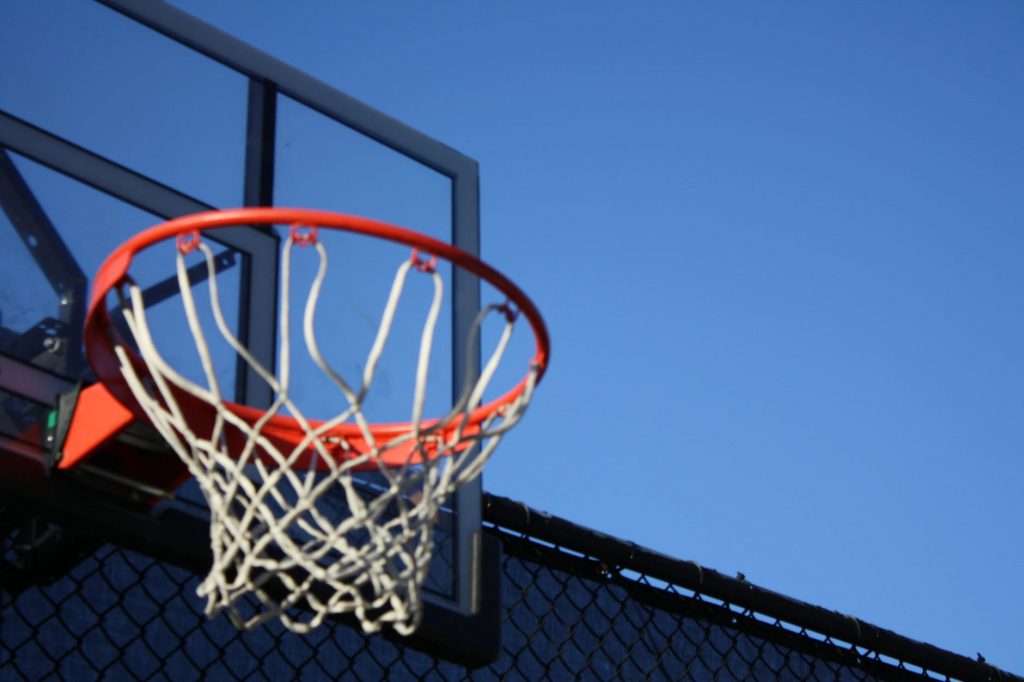
The quote was in reference to discussion that the Ivy League schools were having to help curb the riots and destruction of goal posts and fields that were common among sports fans. There was a heavy concern that if recruitment standards weren’t adjusted, then the Ivy League athletics programs and fans would damage their universities needlessly.
To Protect Our Athletics Identity
In fact, in 1936 The Cornell Daily Sun, the Columbia Daily Spectator, The Dartmouth, The Harvard Crimson, The Daily Pennsylvanian, The Daily Princetonian, and the Yale Daily News ran simultaneous editorials encouraging the universities to form the league.
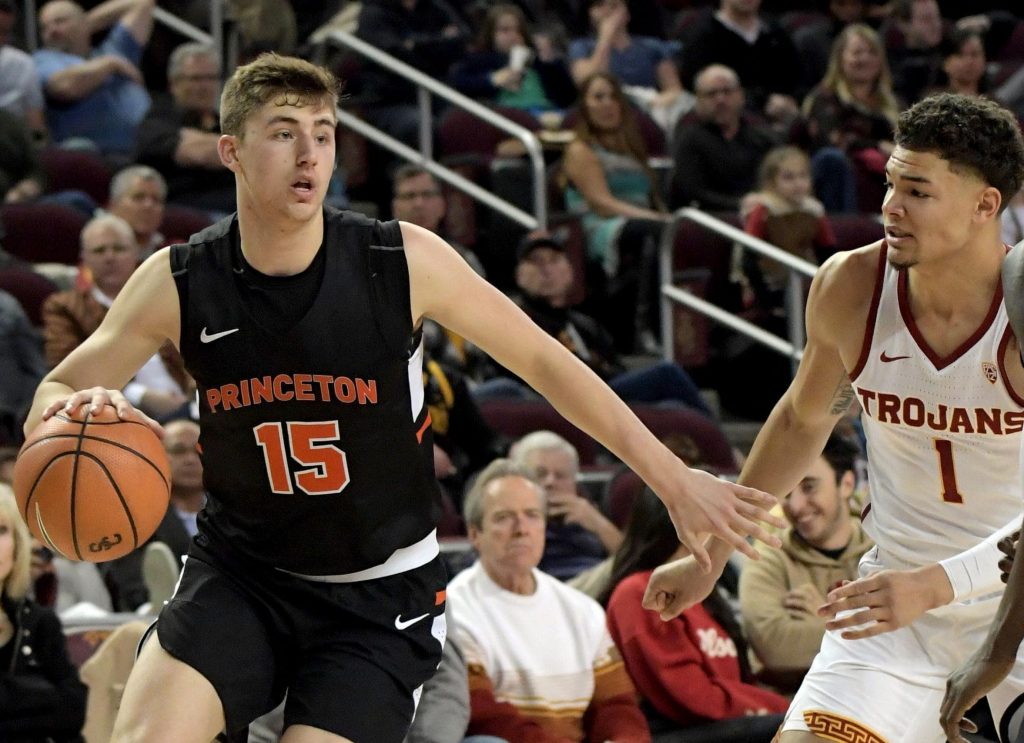
The editorial spoke to how The Ivy League already existed in the minds of students connected with sports. It promoted the benefits of the league coming together with common interests and a common identity.
It is unclear if this article had a direct hand in pushing for the formation of The Ivy League, but it wasn’t soon after that the presidents of the eight schools signed the first Ivy Group Agreement in 1945. This agreement, originally for their football programs, set standards for athletics, academics, and finances that can be summarized with the following core tenet:
The members of the Group reaffirm their prohibition of athletic scholarships. Athletes shall be admitted as students and awarded financial aid only on the basis of the same academic standards and economic need as are applied to all other students.
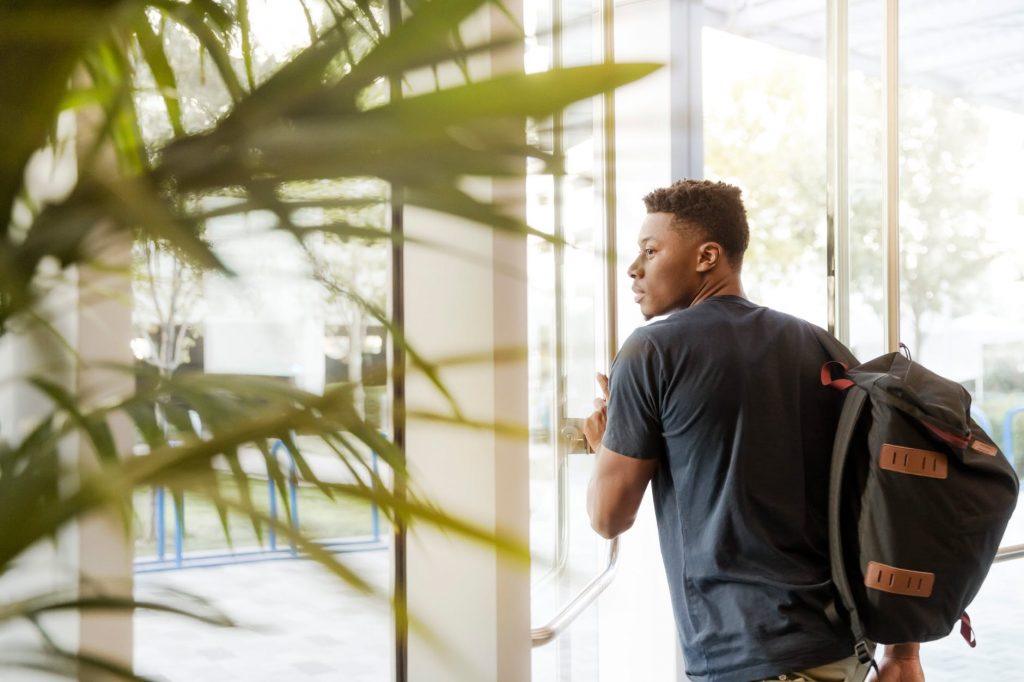
In short, The Ivy League prohibits athletic scholarships, making it unique as a Division I university organization. All students would be welcomed to the school based on their academics prowess first and only. This tenet would be extended to all intercollegiate sports recruitment in 1954 starting with the 1955-56 basketball recruitment season and is considered the official formation of The Ivy League.
Now that you know the history of the Ivy League Basketball programs and basketball recruitment policy, you might be wondering which teams are the best? Let’s find out!
Winningest Championship Seasons
The unique nature of the Ivy League University’s and their athletics programs means that there isn’t an easy way to point at one school and declare them the best. There are three different categories that you have to look at to get the total picture.
These categories are Ivy League Champions, Ivy League Tournament results, and total NCAA Tournament Bids. You can use this information to help narrow down where your basketball recruitment efforts will go.
If you would like an in-depth look at these statistics, you can check out the Ivy League’s own document about their basketball programs at this link.
Ivy League Champions
The Ivy League Champion is the university with the best record during the regular season. Until the 2016-2017 season, the Ivy League Champion would always be selected to compete at the NCAA tournament.
The chart below shows who was the Ivy League Champion since the 1991-1992 season.
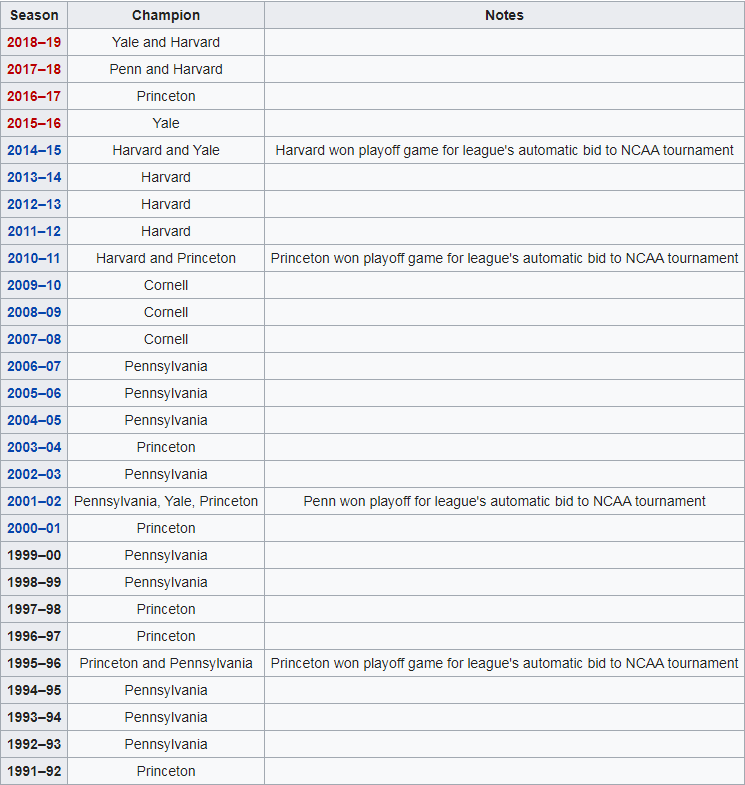
Pennsylvania is the clear winner with a commanding 11 championship titles since the 1991-1992 season. Princeton is close behind with 8 championship titles. Harvard has 6 championship titles followed by Cornell with 3. Yale has one champion title.
If athletics success is considered purely by Ivy League Champion status, then the strongest rosters belong to Pennsylvania and Princeton with the other universities falling behind.
Ivy League Tournament Champions
Starting in the 2016-2017 season, The Ivy League has started running post-season tournaments. These tournaments replace the old system of nominating the Ivy League Champion to receive the NCAA tournament bid. Even with this new change, The Ivy League still recognizes the latest Ivy League Champions as shown in the chart above.
It’s easy to expect that Pennsylvania and Princeton continue their dominance of Ivy League basketball, but the actual statistics offers some interesting data. Take a look at the chart below.

Princeton, Pennsylvania, and Yale have each won a tournament, giving them equal rankings in the post-season tournament rankings. When we compare the Ivy League Champions chart to this one, we see that each of the winners was also named an Ivy League Champion. We also see that Harvard was a runner-up in both seasons Ivy League Champion seasons.
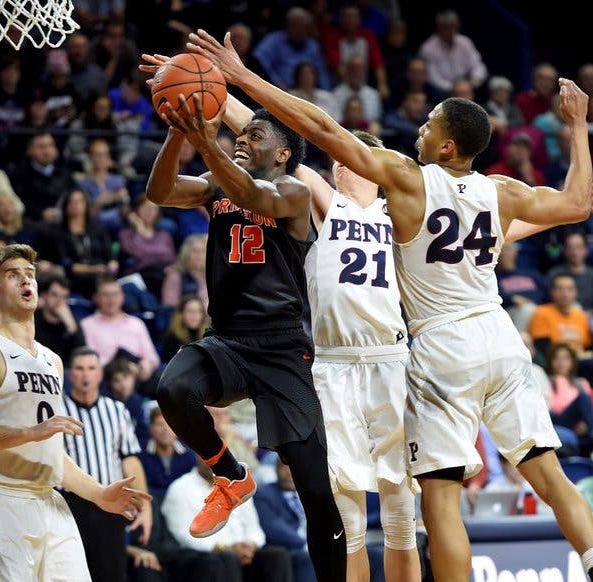
Whether this remains consistent in the future has yet to be seen, but it would seem that The Ivy League champions remain at the top of the class in the Ivy League Tournament.
NCAA Tournament Bids
Finally, we can look at the Ivy League total Tournament bids to see which of these universities have appeared most often in the post season tournament. The chart below goes over total number of bids, and the years where these teams have last won, earned a place among the top ranks, as well as total records.

It shouldn’t come as a surprise that Princeton and Pennsylvania rank highest with 25 and 24 bids respectively. But what is telling is that the next highest ranked university is Dartmouth with 7, with their last bid in 1959. Out of 128 games in the NCAA Tournamnent, the Ivy League has won 43. This means that the Ivy League has a near 33% win rate at this highly competitive level.
But what do these statistics tell us?
Princeton and Pennsylvania are traditionally the strongest basketball universities in The Ivy League while Columbia, Brown, and Dartmouth haven’t had strong seasons for several decades.
Now let’s look at one last set of statistics.
How did they do last season?
If you are interested in the most recent stats, here’s a quick look straight from the Ivy League Men’s Basketball website.

Yale and Harvard had the best conference success with a 10-4 record each. Princeton followed close behind with an 8-6 record. Brown, Penn, and Cornell had tied conference records of 7-7. Columbia and Dartmouth were the losingest teams with a 5-9 and 2-12 record respectively.
Notable Basketball Successes
Don’t let the above statistics get in the way of contacting Ivy League coaches for your basketball recruitment goals. These universities may not have the most consistent win record, but you can find stories of dramatic turn-arounds, incredible upsets, and heart-stopping plays throughout the Ivy League’s history.
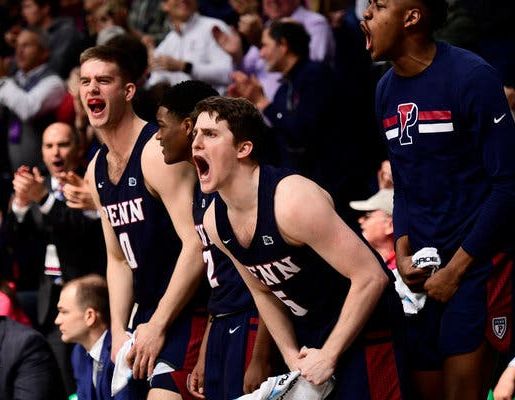
Let’s take a look at three of the most notable.
Princeton and the 1998 season
By the 1998 season, Princeton was undeniably the Ivy League university with the most regular-season success. The Princeton Tigers finished the year with a 26-1 record beating some of the hottest teams like Texas and Wake forest, only losing to North Carolina.
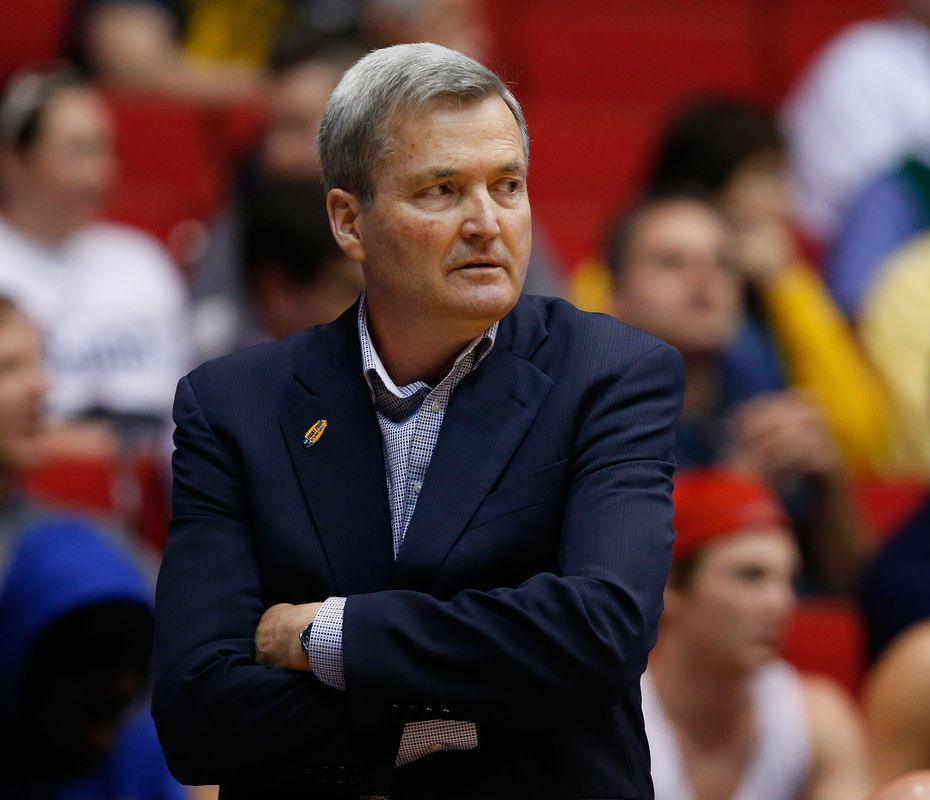
Coach Bill Carmody had a lot to prove at the time, as he was building on the success of former coach Pete Carrill. He also wanted to make a mark after losing in the first round in the 1997 season.
So when the team earned a 5-seed, the highest for any Ivy League roster at the time, they had big hopes for success. They first faced off against UNLV and won with a strong 69-57 record.
The world was watching Princeton to see if their top notch scoring defense would push them further. But when the Tigers faced off against Michigan State in the next round, they wound up losing 63-56.
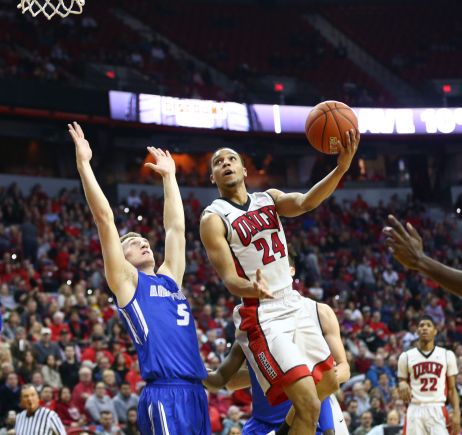
This also marked the last time, at the time of writing, that any Ivy League team received a single-digit seed.
Cornell and the 2010 season
Cornell had an amazing year in 2010 where they went 13-1 in conference play and won their third straight Ivy League Champion title. This earned them an automatic bid in the conference and a 12 seed in the NCAA tournament.
This marked the first time they seeded higher than a 14, and their chance to break their 0-5 slump in four NCAA tournament appearances.
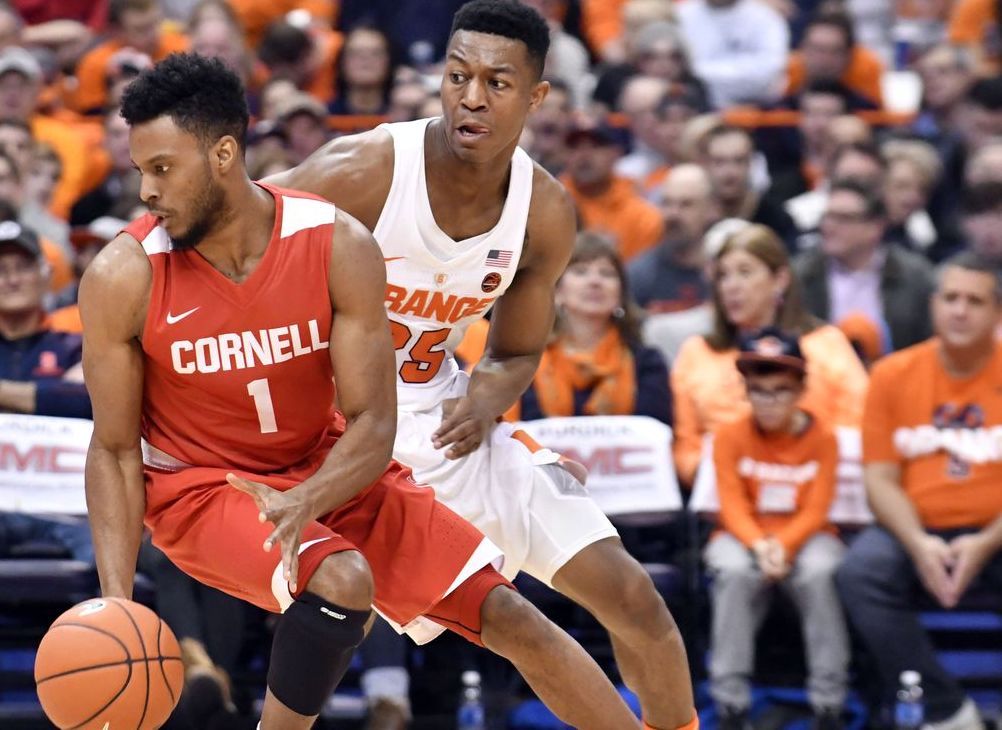
Their first-round matchup against Temple ended in a win at 78-65. They then faced The Badgers, a team noted for their stellar defense that allowed only 56.9 points per game. Cornell came out on top with an 87-69 win.
The run ended against the Big Blue, as they lost 62-45 against coach John Calipari.
Harvard and the 2013 season
Since the NCAA tournament started in 1939, Harvard had just 20 winning seasons and two NCAA tournament appearances heading into the 2013 season. But caoch Tommy Amaker led Harvard into an 11-3 conference record that year earning them a 14-seed against 3-seed New Mexico.
This came after a 14-14 season in 2009, a 21-8 in 2010, a 23-7 season in 2011, and a 26-5 season in 2012 that saw their first NCAA tournament appearance since 1946.
When Harvard came back the next year in 2013 to face off against New Mexico, many suspected that they would lose in the first round just like the previous year. The Lobos had a 4-0 record against ranked teams at that point and won the MWC regular season with a 29-5 record.
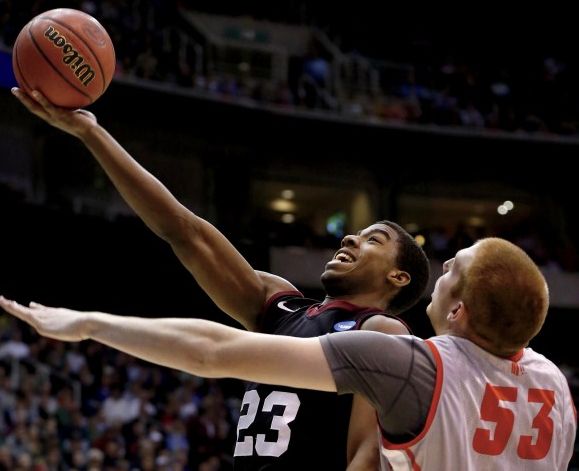
Despite the odds being against them, Harvard held strong and took a 31-27 lead into halftime that led into a hard-fought 68-62 final score.
But stories like these are built on the hard work of coaches and players. So let’s take a moment to look at some of the Ivy League alumni who went on to find NBA success.
Who are some famous NBA Players from Ivy League Schools?
Geoff Petrie
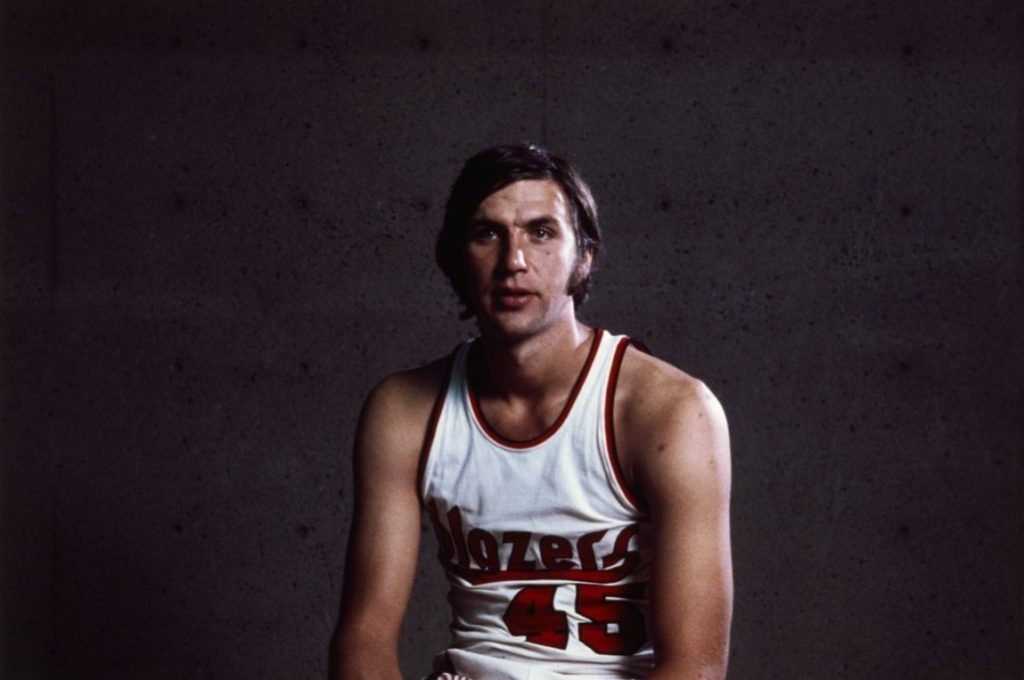
Geoff Petrie found basketball recruitment success when he attended Princeton from 1967-1970 and was considered a dominant college guard. He averaged 23.9 points per game and led Princeton to a 14-0 record that year.
Petrie’s achievements earned him a No. 8 draft in 1970 to the Portland Trail Blazers where he quickly made his mark. He won Rookie of hte Year in 1971 and averaged 24.8 points, 4.8 assists, and 3.4 rebounds per game. That same year he was named to the NBA All-Star team.
He went on to play six seasons for the Trail Blazers averaging 18.0 points per game before a knee injury forced him to retire in 1976.
His later career as a commentator, and senior vice president for the team earned him enough renown that his No. 45 jersey was retired.
Jeremy Lin
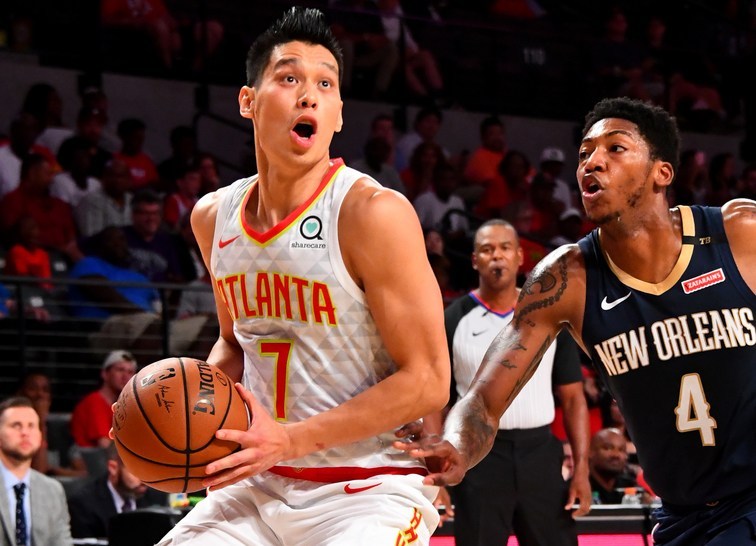
Jeremy Lin had received no athletic scholarships during high school, so he opted for Harvard for his basketball recruitment goals. Harvard was a great opportunity to attend a prestigious university and still play basketball. From these humble origins he would then explode onto the scene in a big way.
Not only was he a three-time All-Conference player in the Ivy League, he was also the first American of Chinese or Taiwanese descent to play for the NBA. In fact, he was one of the few Asian Americans to play in the league.
He would later be recruited for the NBA starting with his season with the New York Knicks in 2011. He would later bounce around teams playing for the Houston Rockets, Los Angeles Lakers, Charlotte Hornets, Brooklyn Nets, and the Atlanta Hawks.
This player was so popular, especially after leading a 2012 turnaround for the Knicks, that “linsanity”, a global craze for Jeremy was born.
Chris Dudley
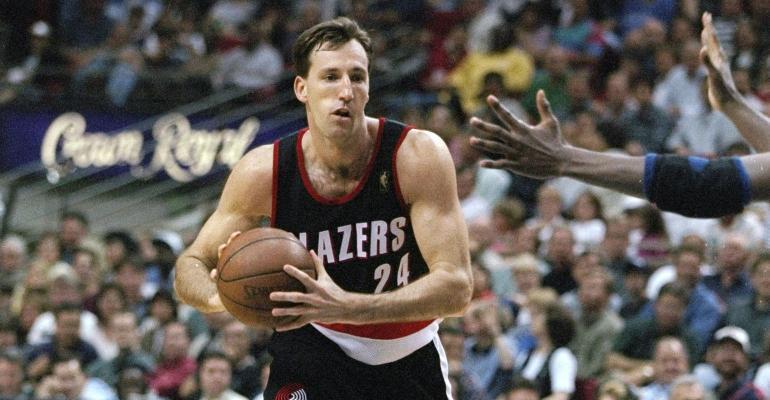
Yale basketball recruitment found a solid workhorse player in Chris Dudley, who played from 83-87 and averaged 17.6 points, 13.3 rebounds, and 2.8 blocks per game. At 6ft 11in, Dudley was a big man who was always reliable if never a star. He specialized in rebounds and defense.
This talent followed him into the NBA where he played for Cleveland, New Jersey, Portland, New York, and Phoenix.
During his 886 NBA game career, he scored 3473 points, 375 assists, 1027 blocked shots, and 5457 rebounds. He would later earn the NBA’s J. Walter Kennedy Citizenship award in 1996.
Do you want to get Match-Fit for the Ivy League?
If you would like to succeed at Ivy League basketball recruitment, and join players like Dudley, Lin, or Petrie, then now’s the time to start getting match-fit. Training at your local or home gym or with your coaches is a great start, but to really see what life is like at the Ivy League level, you can’t go wrong with joining a training camp.
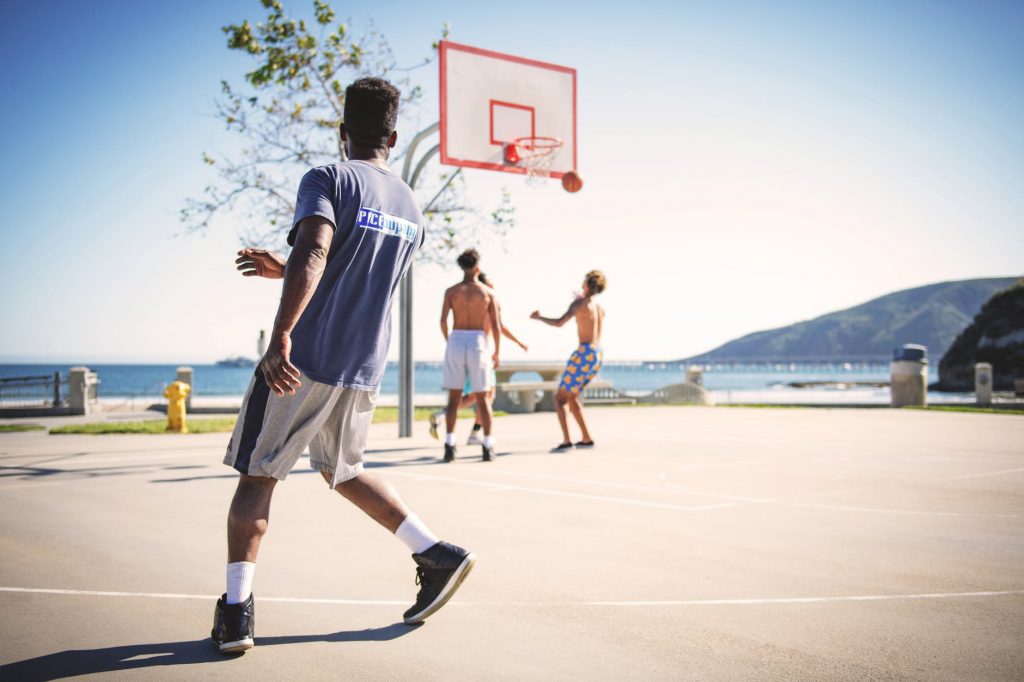
Let’s take a look at the Ivy League basketball training camps and see what they are like.
Cornell
Cornell offers four sessions for their Boys Basketball Prospect Camps that are recommended for high school players who are serious about college basketball. Sessions are run like Cornell practice complete with competitive games. This is a great opportunity for students to play against fellow athletes from all across the country.
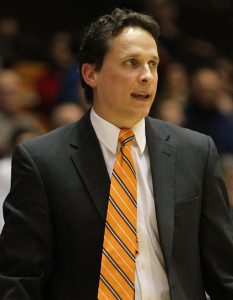
The camp is run by Head Coach, Brian Earl and has a price of $165.
Session 1 is on June 15th, Session 2 is on June 16th, Session 3 is on August 3rd, and Session 4 is on August 4th.
Dartmouth
Dartmouth’s Go Green Basketball Camp offers two sessions a year that is intended on teaching student-athletes what it’s like to be a Dartmouth Men’s Basketball player. Participants will play 5 on 5 games and will have development sessions focused on strength and conditioning, injury prevention, and proper nutrition. The camp also offers lessons on the collegiate admissions process and offers residents a night in the residence halls. All campers also receive a reversible practice jersey.

The camp is run by head coach David McLaughlin with a price of $300 for commuters and $425 for residents.
The first session runs from June 19-June 20. The second session runs from August 9-August 10.
Harvard
Harvard’s Elite Basketball Academy offers two sessions annually where players experience life and play on Harvard’s campus. Campers will play in front of the Harvard Basketball coaching staff as well as participating coaches from across the country. The camp has a focus of offering exposure opportunities as well as evaluation from attending coaches. To make sure that all students receive adequate time with coaches, there is a strict limit on participants.
The camp focuses on 2-on-2, 3-on-3, and 5-on-5 live play with breakdown actions including ball-screens and inside-out post play.
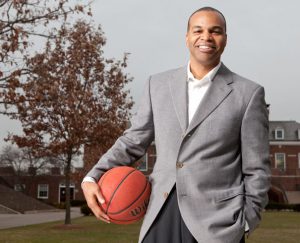
Head coach Tommy Amaker runs the camp with a price of $300 per day for commuters and $650 for overnight options.
Session 1 is on June 15 and Session 2 is on June 16.
Pennsylvania
Penn’s Quaker Basketball Camp offers five one day elite camps where you will spend a day with the Penn coaching staff. The staff will offer individual instruction and learning to teach what it means to compete at the Division I level of play. Sessions include skill development, 3v3 play, and full court competition in The Palestra, one of college basketball’s most historic arenas.
All campers will be provided with instruction, college level drills, 1 on 1 time with coaches, and a Penn Basketball T-shirt.
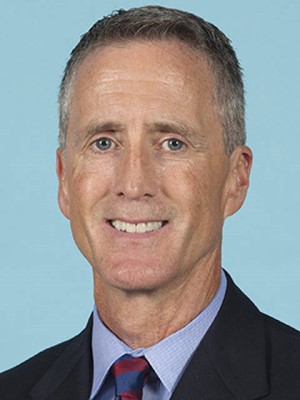
Coach Steve Donahue runs the camp with a $150 price per session and a special 10 player team rate of $750. To learn more about the team rates, you will have to contact coach Mihalich at jmih@upenn.edu .
Princeton
Princeton is unique in that it offers a wide variety of camps, from Elite Day Camps and Overnight Camps for high school students, to development camps for grades 5-12 and 1-6, as well as a team development camp. Each of these camps offer intense instruction in collegiate level athletic play as well as a Princeton Basketball T-shirt, as well as breakfast for the overnight camp.
The camps offer a focus on development for upcoming basketball players starting with basics and building blocks and emphasizing work ethic and team work.
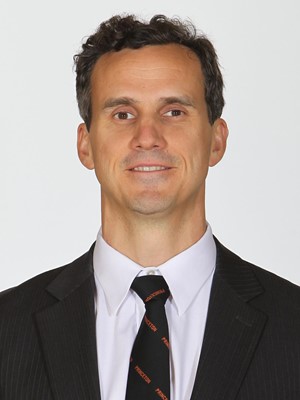
Head Coach Mitch Henderson runs the camps which have the following costs and dates.
Elite Day Camps
- Cost: $125 per session or $225 for both sessions.
- Session 1: June 8
- Session 2: June 9
Elite Overnight Camp
- Cost: $275 camper fee or $125 for Wednesday only
- Session: June 26-June 27
Overnight Development Camp (For grades 5-12)
- Overnight Camper Fee: $550
- Day Camper Fee: $395
- Session: July 11-July 14
Day Development Camp (For grades 1-6)
- Cost: $395 Camper fee
- Session: July 15,-July19
Team Camp (Open to High School Teams)
- Overnight Camper Fee: $275
- Day Camper Fee: $195
- Session: June 28-June 30
- Important Note: Team Camp applications will only be accepted if one of your coaches writes in and passes a background check.
Yale
Yale offers two camps every summer.
The first camp, the Elite Camp, is focused on high school student athletes. This camp offers personal attention and instruction, an 8:1 player to coach ratio, skill development, as well as important college admissions and financial aid information.
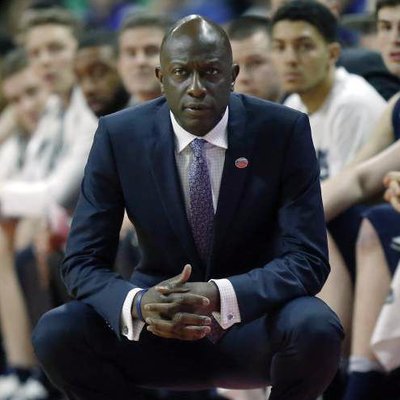
This camp is run by Head Coach James Jones, and has Day & Overnight sessions from May 31 – June 2 as well as from August 2-August 4. The cost is $375 for commuters and $550 for overnight campers.
The second camp, The Bulldog Camp, is for boys from ages 7-15. This camp provides motivational lectures about self-confidence, off-season training, positive attitudes, and goal setting. It offers a great 8:1 player to coach ratio as well as skill-building stations and development. Campers are guaranteed to be able to play two league games per day of the camp.
Head Coach James Jones leads this camp which has two sessions from June 24-28 and August 5-9. These sessions have a $300 per week cost.
Brown
Brown University offers four men’s basketball camps throughout the year. These camps are divded between the Men’s Elite Basketball Camp for high school students and a Men’s Basketball Day Camp for boys from grades 1-12.
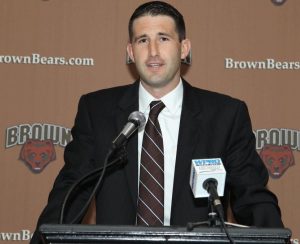
The Elite Basketball Camp has a focus on skill development and team play and offers students the opportunity to compete in 5 v 5 games against other campers. This camp also offers high school players individual instruction from Coach Mike Martin and his staff taken directly from Brown Men’s basketball practice.
The following are the costs you can expect for either of the Elite Camp sessions on June 15-16 or on August 1-2.
- Residential Camper: $450.00
- Full Commuter Camper: $375.00
- One Day Commuter Camper: $185.00
The Day Camp is designed to teach basketball skill for players of all skill levels from grades 1-12. It also focuses on organized teamwork as well as basic skills such as dribbling, passing, and shooting. Campers will take part in daily contests and 5v5 games, while finding instruction and assistance from Head Coach Mike Martin.
The following are the costs you can expect if you want to take part in these camp sessions on June 24-27 or on August 5-8.
- Full Camper: $275.00
- Per Day Fee: $75.00
Columbia
Columbia offers three camps during the year with two Day Camps for boys from ages 6-15 and 17 respectively as well as an Elite camp for high school student athletes.
The Day camps are designed to teach basic on-court basketball skills to help develop tomorrow’s players and to give them a fun experience. The camps also reinforce skills with fun challenges and games to help students hone the skills that they learn through the camp. These sessions are a great way to get started with basketball for campers of all ages.
Jim Engles runs the Day Camps in two sessions.
- Session I: July 08, 2019 – July 12, 2019
- Session II: August 12, 2019 – August 16, 2019
- Registration Fee $499.00
- One Day Pass $75.00
The Elite Camp is designed to offer two days where student-athletes can experience the life of a Columbia men’s basketball player. Tuition includes a two-day, one-night stay in Columbia housing with three training table style meals. Players will work with head coach Jim Engles and his staff in drills, workouts, game situation awareness, and skill development in the same style Jim Engles uses for the Lions. With a focus on 1v1, 3v3, and 5v5 full court play, every camper will have plenty of opportunities for exposure in front of the 60+ coaches from across the country.
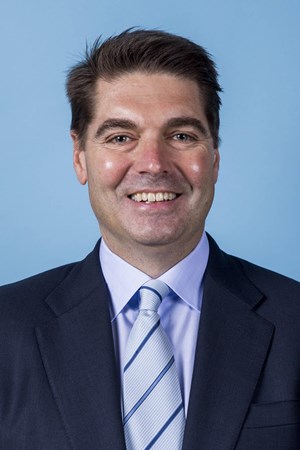
Jim Engles runs this camp from August 3 – August 4 with the following price details.
- Commuter Fee $350.00
- Overnight Fee $450.00
- One Day Commuter $175.00
Five tips on getting recruited to the Ivy League
By now, you likely made your choice about for your Ivy League basketball recruitment goals. So let’s look at five tips that will give you the strongest chance at exposure and recruitment.
Maintain your Grades
We covered it earlier, but The Ivy League schools are dedicated to being academic organizations first. This means that they do not offer athletic scholarships even with their Division I status. So even before you consider your match-fit readiness, you must exceed the NCAA division I requirements listed below.

- Complete 16 core courses to include…
- Four years of English
- Three years of math (Algebra 1 or higher)
- Two years of natural/physical science (including one year of lab science if your high school offers it)
- One additional year of English, math or natural/physical science
- Two years of social science
- Four additional years of English, math, natural/physical science, social science, foreign language, comparative religion or philosophy
- Complete 10 core courses, including seven in English, math or natural/physical science, before your seventh semester.
- Earn at least a 2.3 GPA in your core courses.
- Earn an SAT combined score or ACT sum score matching your core-course
- GPA on the Division I sliding scale, which balances your test score and core-course GPA.
Contact your local coaches and Ivy League recruiting coaches early and often
No matter how strong your academics are, you are still competing with thousands to millions of students for the same enrollment and scholarships. That’s why it’s vital that you make sure that your high school or club coaches are aware of your interest and working on your behalf.
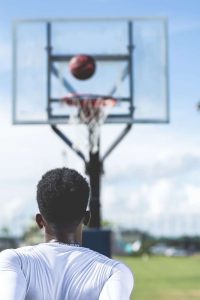
Basketball recruitment also requires that Ivy League recruiting coaches know your name so that they keep an eye on your progress. This is also a great way to make sure that you are noticed if you can make it to an Elite camp for your university of choice.
Start gathering high-quality clips for your highlights reel
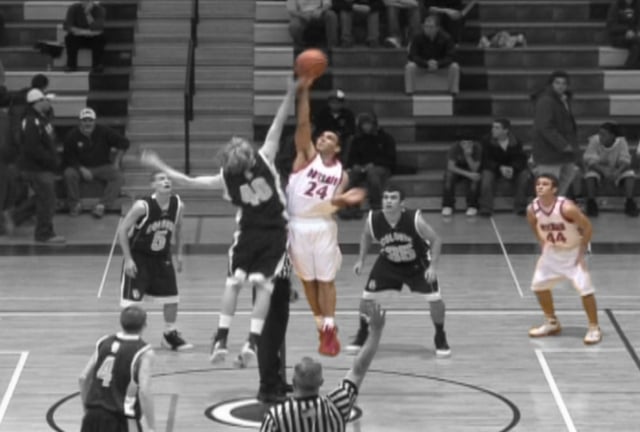
While game day experience is valuable, it can be easier to get noticed during Ivy League Basketball Recruitment if you have a 5-star highlight reel. Purchase or rent a high-quality video camera and see if you can professionally edit or hire an editor to compile your reel. The easier you make it for recruiting coaches to notice your talent, the more likely you will make your mark.
Showcase for Success
University showcase camps aren’t just a great way to learn collegiate basketball play, they are also a place where coaches come from all across the country to see and meet tomorrow’s star players. Even if you can’t make it to the showcase camp for your chosen Ivy League university, you can still research which camps they will attend so you can participate there.
Stay in great health and shape
University sports, especially at the Division I level, requires a level of focus, discipline, and dedication you might not be used to. When the Ivy League is actively involved in Basketball recruitment, even with their academics first standards, they still want players in great shape.
But you can get in the right frame of mind and body now by developing better training and health habits. Watch your diet, exercise often, and get lots of sleep so that you are at your best every day. This will also improve your performance on the field or in showcase camps.
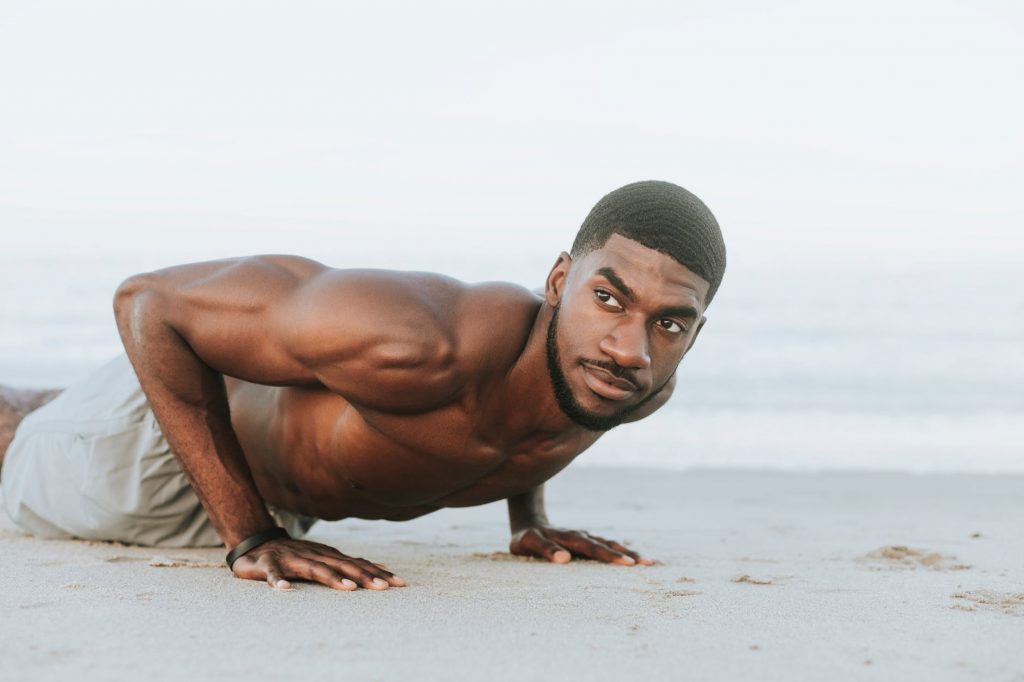
What about the Mini Ivy-Leagues?
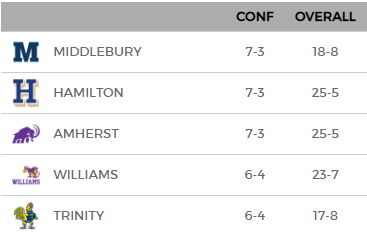
For some students, the competitiveness of the Ivy League basketball recruitment calendar may seem impossible to overcome. But rather than giving up on the Ivy Leagues, we wanted to share alternative options that will still give you the high-quality education you want.
These universities are known as the Little Ivies, and they are known for large financial endowments and their competitive nature. Let’s take a look at three of these Little Ivy League Universities and how they rank in the New England Small College Athletic Conference (NESCAC).
Middlebury College
Ever since the NESCAC lifted its ban on NCAA play in 1994, the Panthers have won a total of 33 team championships. Last season, Middlebury matched Hamilton’s and Amherst’s conference record of 7 wins and 3 losses and boasts a Princeton review rank for 18th best athletics facilities in the United States.
Hamilton College
Hamilton’s sports teams could not participate in national postseason tournaments until the 1993-94 year. Hamilton later won its first NCAA championship when its women’s lacrosse team defeated Franklin & Marshall in the finals with a 13-6 score. Last season, Hamilton matched Middlebury’s and Amherst’s conference record of 7-3.
Amherst College
Amherst has a strong athletics center with over one-third of their student body participating in intercollegiate sports and eighty percent participation in intramural and club sports teams. Amherst is also one of the “little three” alongside Williams and Wesleyan. Amherst’s conference record of 7-3 places it along side Middlebury and Hamilton.
Williams College
Due to NESCAC rules, Williams was not permitted to compete in team NCAA competition. Before that, Williams earned the school’s first national title in 1981 when the women’s swimming and diving teams claimed the title that year and again in 1982. The Men’s basketball teams played in the national championship games 1997, 1998, 2011, and 2017 Final Fours as well as the first New England basketball team to win a Division III Championship. No other team in the country has played in more Final Fours. Last season they had a conference record of 6-4.
Trinity College
Considered to be an alternative to Yale, Trinity College sponsors a wide range of sports. It also holds a place of honor as the second oldest college in Connecticut. Their basketball program reached the Division III final four in men’s basketball in 1995, and made the Women’s NCAA Tournament in 1995 and 97. They would later become Women’s ECAC champions in 2000 and Men’s NESCAC champions in 2008. Their conference record last season was 6-4 matching them with Williams.
Now that you know more about the Ivy League and Little Ivy League colleges and universities, which ones will be your target for Basketball college recruitment?
